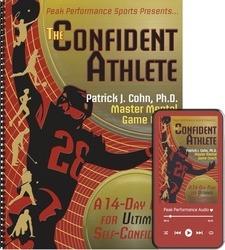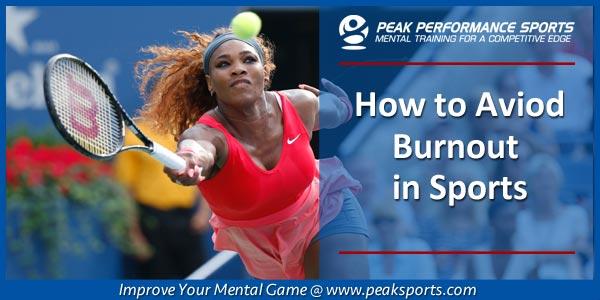The Secret to Success in Sports
Do you believe that you will perform twice as good if you trained twice as long?
The “more is better” mentality is thrust upon young athletes at a very early age.
Parents and coaches try to get to get kids to specialize in one sport at early ages.
Parents feel they need to get their child going in a sport early so they are not left behind by other athletes.
These young athletes grasp tightly to that ideal as they progress forward in their sport, so they train longer and longer.
Young athletes often train longer than collegiate athletes who are mandated to train no longer than 20 hours a week.
Even when young athletes hit a performance lull, they hit the gym longer, get more private instruction and practice even more when they get home.
Does this sound like the path your athletic career has taken? Have you become twice as good in your sport?
The reality is that hard work helps you improve to a point. Too much physical training, or over-training, leads to mental exhaustion, frustration, staleness and a decline in performance.
When athletes spend an inordinate amount of time training in one sport from an early age, they lose their passion, become “burnt out” and often quit their sport even before college.
So what is the key to improved performance if doubling down on physical training is not beneficial?
The most effective way to improve performance without burning out is to supplement your physical hard work with mental training.
The Mayo Clinic Center in downtown Minneapolis recently held a seminar to bring in experts to talk to high school kids about what it really means to be a “healthy” athlete. One major topic of interest was over-specialization and the stress caused by focusing on one sport from an early age.
Exercise expert Ben Maronde emphasized the importance of balance instead of over-specialization and over-training.
MARONDE: “What I want them to take away is the value of a strong foundation and a solid base of movement skills. I think far too often we have athletes these days who come through and they get the sports-specific skills pushed on them at an early age.”
Sport Psychologist Dr. Justin Anderson talked about the benefits of training mind and body.
ANDERSON: “I think a lot of [athletes] don’t understand what are the triggers to their stressors. How do they manage the stress, how do they deal with it — and there’s a lot of stress out there. What these kids want to know is how to get better — now. What they are [taught here] is take care of your mind and your body.”
If you agree that stress and over-training have adversely affected your performance, then commit to developing your mental game.
Mental training will keep your enthusiasm up, help you stay motivated and improve your performance without suffering through the detrimental effects of over-training.
Tip for improving your mental game:
Your coach has helped you develop a training plan to develop your body for physical competition. Seek out the expert advice of a Mental Game Coach to help you get mentally prepared for competition.
A psychological skills training program (goal setting, imagery, stress management, confidence building and focusing) will help you reap greater rewards within your sport.
Related Sports Psychology Articles
- How to Avoid Burnout and Dropout in Sports
- Golf Podcast: Signs of Burnout
- Creating a Healthy Experience for Young Athletes
*Subscribe to The Sports Psychology Podcast on iTunes
*Subscribe to The Sports Psychology Podcast on Spotify
Download a free sports psychology report to improve your mental game!
Learn more about our one-on-one mental game coaching.
The Confident Athlete

“The Confident Athlete” consists of 2 audio programs that include 14 days of confidence fueling exercises and a simple to follow workbook that guides you through the 14 days, helps you apply the strategies, and customizes the exercises to your personal needs.
Let me help you put a stop to the confidence leak. You can learn to have greater levels of confidence in competition than you do in practice by identifying the specific ways you undermine your own confidence and how to convert your practice confidence into COMPETITIVE CONFIDENCE.
“The Confident Athlete” is a ground-breaking system to teach you how to think like a champion and have ultimate self-confidence every time you step on the playing field, court, track, or course. The confident athletes was developed for any athlete – junior to professional –that wants to gain confidence. However, coaches and sports parents can learn how to teach others to perform with ultimate confidence. Use my program if you want to bust a slump or just wanting higher or more consistent levels of self-confidence.

